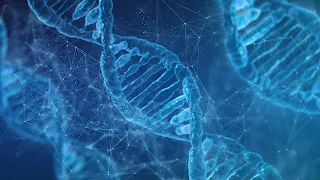My DNA Shocker
Did the clickbait title draw you in? My shock may not be what you expect. It isn't that I have some genetic condition I didn't know about or found out I was adopted. My shock was at how primitive our current knowledge about our genome is!
Disclaimers:
- My readers are all intelligent enough to know this, but nothing in this blog should be considered medical advice since I am not a doctor or geneticist!
Amazon links in this blog will hopefully earn me a commission. I was going to put them in anyway so I might as well get paid for it! A link does not necessarily mean I endorse that product. Update: I apparently didn't drive enough traffic to Amazon, so they booted me from their associates program. Links in this blog now earn me diddly squat.
Background
I read a book this summer called Healthy Heart, Healthy Brain that presented what the authors' claim is a new way of looking at heart and brain health. It focused a lot on non-invasive testing with specific tests selected based on your genetic markers.
The book repeatedly mentioned the Heart Attack Gene, 9P21; the Apo E genotype; the haptoglobin genotype and the KIF6 genetic variant as risk factors for arterial problems that can lead to heart attacks, strokes and dementia.
I had resisted the lure of personal genome sequencing until now. This was my first inkling that knowing my genome could have benefits that goes beyond the novelty of determining my ancestral background, how much Neanderthal DNA I have or that I have blond hair.
Research
I spent a couple days studying what I could find on the various genome mapping services out there and ended up going with 23andMe. They seemed to have the data I was looking for and didn't require an ongoing subscription (which I hate!) to access your data. They do have a subscription plan for additional reports and updates, but you don't have to purchase that. I went in with high expectations and came away a bit disappointed.
Results
The basic results from 23andMe were pretty useless for me in terms of health. They didn't report on any of the genetic markers mentioned above in the book. The only actionable health item they told me is I have an increased risk of diabetes.
Even worse, the most critical traits were way off. According to their reckoning, I only have a 28% chance of having a bald spot, a 36% chance of early hair loss and an 84% chance of little or no back hair. I should be a middle-aged stud! In reality, my head was mostly bald before 40, but I have hair everywhere else. Picture a bald Chewbacca. Ok, it's not that extreme, but that is a fun mental image, isn't it?
That they list these traits as probabilities should've given me some clue that perhaps genetics is not as precise a science as high school biology and the media make it out to be. More like economics than physics in terms of our understanding how it works.
Digging deeper
One of the key factors that led me to use 23andMe is they give you access to your raw genome data. It isn't your complete genome, just portions of the small percentage that typically varies between individual humans, but I hoped it would contain everything I wanted to know.
In some cases, you can search by gene. In other cases you have to search by markers also known as Single Nucleotide Polymorphisms (SNPs, pronounced snips) which are the individual base pairs at a particular location in your DNA sequence (the A-T pair or the G-C pair). Here's where it starts to get complicated. 23andMe doesn't return any results for the 9P21 gene and the KIF6 gene returns hundreds of different markers. How can the book talk about having "the KIF6 gene" when there are 2^100 possible combinations of base pairs in the gene (assuming 100 markers)?
In scouring the Internet for answers to these questions, I found a great site called SNPedia that helps to make some sense of it all. This site lets you search for genes, SNPs, diseases and keywords and returns information that links medical studies to specific SNPs and what their suspected role in disease or function is. With the help of SNPedia, I concluded there are a handful of SNPs in the 9P21 gene that are commonly accepted to be associated with increased risk of heart attacks (rs10757278 and rs1333049 being the most prominent.) It also helped narrow down the KIF6 gene to one useful SNP that relates to how effective statins are at preventing heart attacks (rs20455). I expect this is likely what the book was referring to when it talks about being a carrier for the KIF6 gene.
Still, the medical studies on these are not conclusive and mostly show correlation to a specific condition and most don't speculate on causation.
This was eye opening to me- we don't know how or why these genes are related to arterial health problems, just that large studies have shown a particular SNP variant shows up more often in some people who have had a heart attack or arterial plaque or some other health problem.
The Future
My pre-conceived notion was that with the human genome having been fully mapped for many years now, scientists would have a clear idea of what genes did what. Data scientists could mine the big data to search for precise correlations and know with certainty what SNPs associated with what trait. Instead, it appears we only see the tip of the iceberg and there is much more still to learn.
I believe we will get there. My digging into the BRCA genes gives me reasons for hope. These are the genes commonly associated with breast cancer risk and are in the news a lot, so I figured they would be well documented and studied. It turns out, there are thousands of SNPs that make up the two BRCA genes. 23andMe doesn't even decode the full gene. They assess breast cancer risk based on just 3 of those SNPs across the two genes. Those particular SNPs not only show strong correlation with breast cancer in numerous studies, but scientists have figured out what they do that increases that risk. 23andMe has an easy-to-read synopsis explaining that the problem variants at these SNPs interrupt a certain protein's function that prevents cells from dividing too rapidly. Without this function tumors can grow quickly. I don't know if the higher level of knowledge about the BRCA genes is due to research funding and quantity of research or if it is just a simpler mechanism to research and understand than heart disease.
My Conclusions
In my opinion the Healthy Heart, Healthy Brain book is trying to sell the science a little too hard, over-simplifies it and comes across as overconfident. That isn't to say its conclusions and recommendations are faulty, just that it reads more like a marketing brochure than a medical book. On the positive side, it inspired me to go on this learning journey into genetics and is good for stoking the fires of thought.
As for having my genome mapped, I am on the fence as to whether it was worth the cost. (I paid $150 for the health and ancestry kit.) The real value is in the data and that is true for both me and 23andMe and their partners. Having more data enables the data scientists to mine the genome for more associations, so I am contributing to the science by having my genome mapped. Similarly, I now have my genome data and as new discoveries are made, I can screen my data to see if I am affected. There are services that will import your raw data and spit out a result, such as a cardiac risk number. I'd love to see this field evolve and grow in an open-source manner, though it is likely going to be hampered by privacy and regulatory concerns.









Comments
Post a Comment